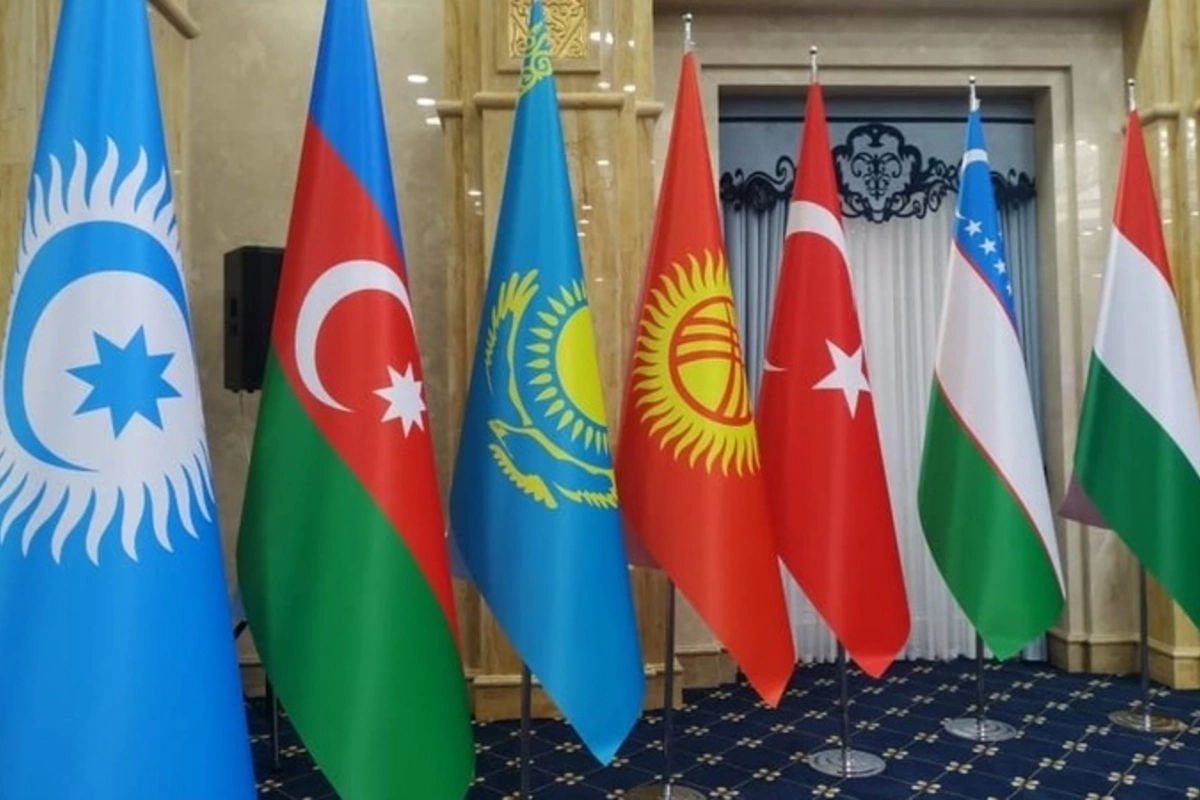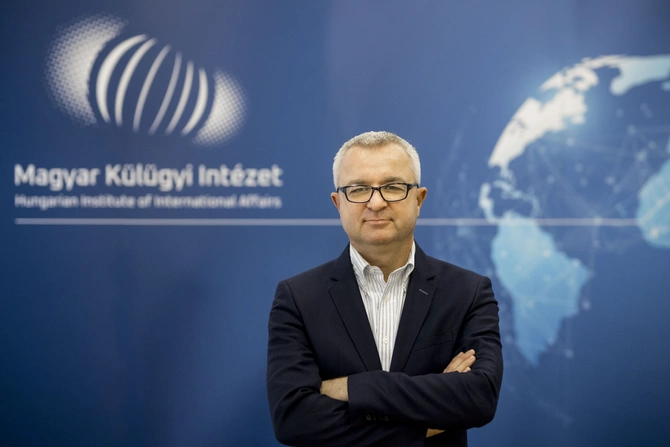
Photo: AKIpress news agency
By Asif Aydinly
As Hungary prepares to host the upcoming informal summit of the Organization of Turkic States on May 21, the country’s role in Eurasia is drawing growing international attention. From its strategic partnership with Azerbaijan and involvement in Karabakh’s reconstruction to its active participation in the Black Sea Green Energy Corridor, Hungary is clearly positioning itself as a bridge between Europe and the Turkic world. At the same time, Budapest continues to navigate complex relations with both the European Union and neighboring Ukraine.

The Caspian Post spoke with László Vasa, Chief Advisor and Senior Researcher at the Hungarian Institute of International Affairs, about Hungary’s priorities in Eurasia, its growing cooperation with Azerbaijan, the future of the Organization of Turkic States, and the challenges shaping its position in Europe.
- What prospects do you see for further strengthening cooperation between Hungary and Azerbaijan in the coming years?
Azerbaijan is one of the most dynamic countries in Central Eurasia and plays a key role in both East-West and North-South trade and transport corridors. Hungary is keen to increase its economic presence in Azerbaijan. Several Hungarian companies are already active there, with investments in manufacturing, trade, and construction projects. The direct flight between our countries significantly facilitates business and people-to-people contacts.
There are still vast untapped opportunities for economic cooperation-not just for Hungarian investors in Azerbaijan, but also for Azerbaijani companies looking to expand into the EU via Hungary. As an EU member state, Hungary provides an excellent gateway for Azerbaijani businesses seeking to enter the European market.
We are also contributing to the reconstruction of Karabakh, and we are involved in the development of the Black Sea Green Energy Corridor, a globally significant project. Additionally, there is great potential to deepen cooperation in science and higher education. Hungary is ready to share its knowledge and expertise to help develop Azerbaijan’s universities and research institutions.
- On May 21, Hungary will host an informal summit of the Organization of Turkic States (OTS). What does this say about Hungary’s growing role in the organization? Do you see Hungary becoming a full member in the near future? What is Hungary’s interest in this cooperation, and what opportunities does it open up?
Hungary shares historical and cultural roots with the Turkic nations, stemming from our steppe heritage. It is natural for us to seek closer cooperation with countries with whom we share a sense of cultural and brotherly connection. However, Hungary does not seek full membership, partly because our language is not of Turkic origin. Despite this, our engagement with the OTS is very active-almost as if we were a full member.
We initiate and finance various projects, such as the Drought Research Institute, participate in the joint investment fund, and host the only OTS diplomatic representation outside the Turkic region, located in Budapest. Moreover, our bilateral relations with Turkic states are excellent; we have special strategic partnerships with nearly all of them.
Our participation in the OTS aligns with Hungary’s "Eastern Opening" strategy, which aims to diversify our foreign relations, reduce overdependence on the West, and promote our economic interests in the broader Eurasian region.
- Judging by the latest developments between Hungary and Ukraine, political tensions appear to be growing. What are your forecasts for how this might unfold?
Ukraine is doing everything it can to influence Hungary’s position on its EU accession and on securing further EU financial support for its war efforts. Hungary maintains that Ukraine must fully meet all accession criteria, and that the process cannot be accelerated or prioritized over candidate countries, such as those in the Balkans, that have been waiting for years. Budapest categorically rejects the idea of EU financial support for Ukraine’s military efforts, believing that such support undermines the goal of peace and harms the EU economy.
Kiev, in turn, is using every available tool, including what it calls the “espionage issue,” in an attempt to discredit Hungary internationally. However, it is important to understand that it would be naïve to assume that Hungary would not conduct intelligence operations in neighboring Ukraine, as this is a fundamental national security interest. What stands out in this case is how openly Kiev has acted, whereas such matters are usually handled quietly behind the scenes.
Looking ahead, I do not expect tensions to escalate much further. Relations are already at a low point. NATO is also likely working to de-escalate the issue, as the situation is embarrassing for the alliance-after all, this involves intelligence activities by a NATO member that could benefit the alliance as a whole.
- How would you describe Hungary’s current relationship with the European Union? What future do you see for Hungary in this organization, given the frequent disagreements?
Hungary has many ongoing disputes with the European Union. We often feel targeted by certain EU institutions simply because the Hungarian government takes positions that differ from the European mainstream on issues such as illegal migration, gender ideology, and unconditional support for Ukraine.
The Hungarian government envisions a Europe based on strong, sovereign nation-states, rather than a "United States of Europe" that erodes national identities and governance. Despite our disagreements and criticisms, we are committed to improving the EU from within. Exiting the Union is not part of our agenda.
Share on social media